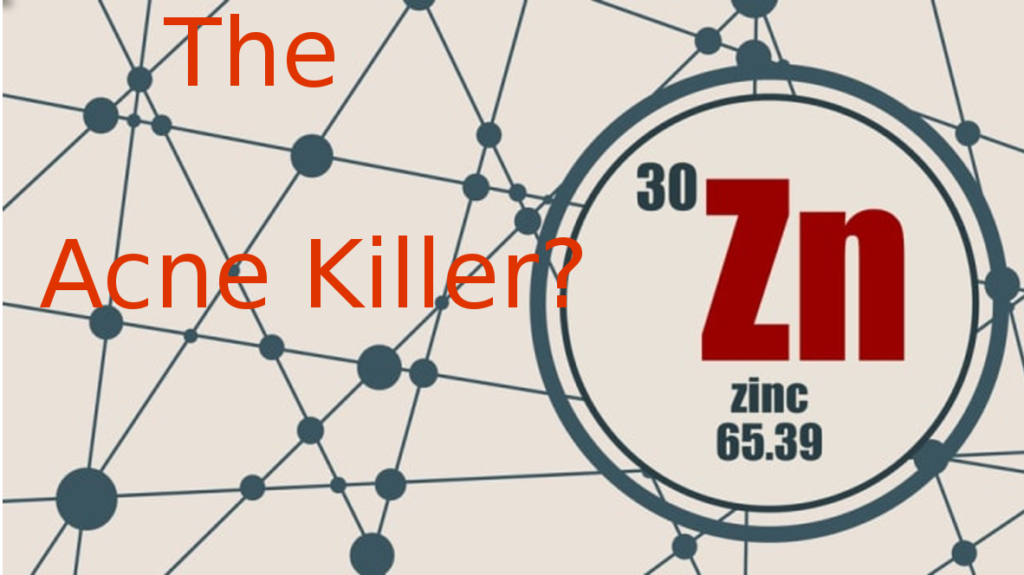
One thing I like to do after finishing a post is review it for mining of other topics. The last post on body acne was no different. The mineral zinc came up several times in my research. The acne zinc connection was readily apparent. It’s one of those nutrients that’s valuable both externally and internally. It has far reaching health factors and proved not to let me down when I looked into it further.
Zinc: what is it?
Zinc is an essential trace mineral that is necessary for multiple systemic pathways in the body to function. It plays a role in numerous biochemical reactions of the body’s systems. It helps the immune system and keeps illnesses in check by inhibiting pathogens and diseased cells.
Zinc is no short hitter in the mineral/vitamin world. An encyclopedia and then some of information exist about it. For the sake of this article I will limit the scope to acne, skincare and its related effects and pathways. Rest assured though, zinc goes far beyond that as far as health impact on other areas of the body.
How does it impact acne?
Blood sugar/metabolism
Zinc plays a critical role in balancing hormones. The primary hormone that regulates blood sugar is insulin. Zinc binds to insulin so that it’s properly warehoused in the pancreas. Insulin is released when glucose saturates and flows though the blood. Zinc is responsible for the efficiency and efficacy of digestive enzymes that are critical for insulin to stick to cells. This pathways is important because it tells the cells to use the glucose as fuel. Without this signal, the body would store the glucose as fat.
This is important because too much glucose in the bloodstream stirs up inflammation markers that exacerbate several conditions, one of of which is acne. Keeping blood sugar balanced helps acne from flaring up with breakouts.
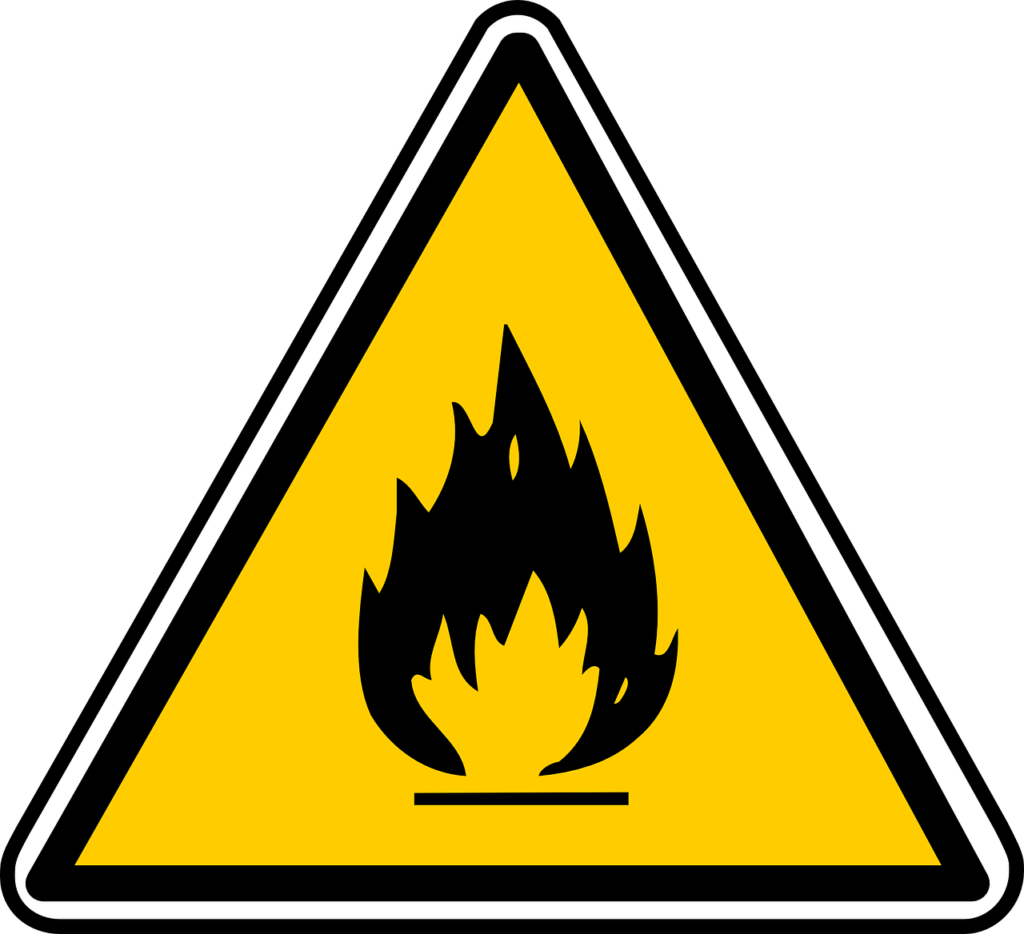
Inflammation
Zinc inhibits inflammation by reducing the body’s response to external factors like dead cells, oil and bacteria. Any one of these factors, or in combination, can lead to significant breakouts.
Zinc helps with the pathway for Keratinocyte regulation. Keratinocytes are cells that produce keratin, which are proteins that keep hair and skin resistant to damage. Think of keratin like a type of armor. The problem is that an overabundance of these cells can cause pores to become blocked, which can cause acne. Zinc helps establish a balance so less blockage occurs. Less blockage equals less acne.
Zinc has mild DHT blocking properties. DHT is partially responsible for elevated sebum (skin oil) production. Inflammation is one of the body’s main reaction to elevated sebum levels. The lower the sebum levels, the less the inflammatory response. Less inflammation means less acne.
Once more, bacteria in the pores that cause acne are inhibited by zinc. There are several studies that indicate zinc kills the bacteria responsible for acne. In addition, it also keeps other strains of bacteria in check. This curtails inflammation by keeping those bacteria that cause it contained. A key point to stress is that there’s little, if any, bacteria strains resistant to zinc, which can’t be said for chemical antibiotics.
Zinc plays a key role in the metabolism of Omega 3, which limits the amount of inflammatory markers released in the body, including the skin. As you guessed it, lower inflammation means less breakouts.
Hormones
Outside of the hormones discussed above, Zinc is essential to other hormone production. For men, it’s key to balancing testosterone naturally with the body. For women, it impacts sex hormones and plays a role in the monthly cycle. Zinc is needed for the production of estrogen and progesterone, both of which are critical to reproductive health. I wrote a post about hormones and acne that is worth a read. (Hormone post)
Those experiencing puberty with constant hormonal changes should take note of the importance of Zinc in stabilizing hormones. (Study) For those older, balanced hormones may lower the risk for some cancers.
Cellular turnover/apoptosis
Apoptosis is the part of the cellular life cycle that results in the death of the cell. This is a cell death that is programmed and is necessary to prevent the body from being overrun with bacteria, parasites, cancers and viruses. This is the body’s way of housecleaning and keeping diseases in check.
Zinc is essential for apoptosis to occur. Without it there will be too many dying or dead cells that buildup and strain the body. Zinc is critical to stabilizing the cell life cycle, especially the phase of the cycle involving massive growth. This is why regulating cell turnover in the sebaceous gland (responsible for oil production) and parts of the skin is critical for keeping keep acne in control.
Immune function
Zinc forms the backbone of several parts of the immune system. (Study) It helps the body to grow and differentiate T-Cells, which are some of the immune cells that do the heavy lifting to ward off disease. It plays a protective role in the cellular membrane. In addition, zinc is a vital component of hormone receptors and proteins that are involved with the function of the immune system.
Wound health
Zinc is important to wound healing. (Study) This healing mechanism can deplete the body of zinc. If not replenished this can lead to slower and less effective healing. It’s recommended that anyone with cuts, burns or significant injury should be supplementing with zinc to offset these loses. Certainly acne suffers would fall under this category, as wound healing is constant and steady.
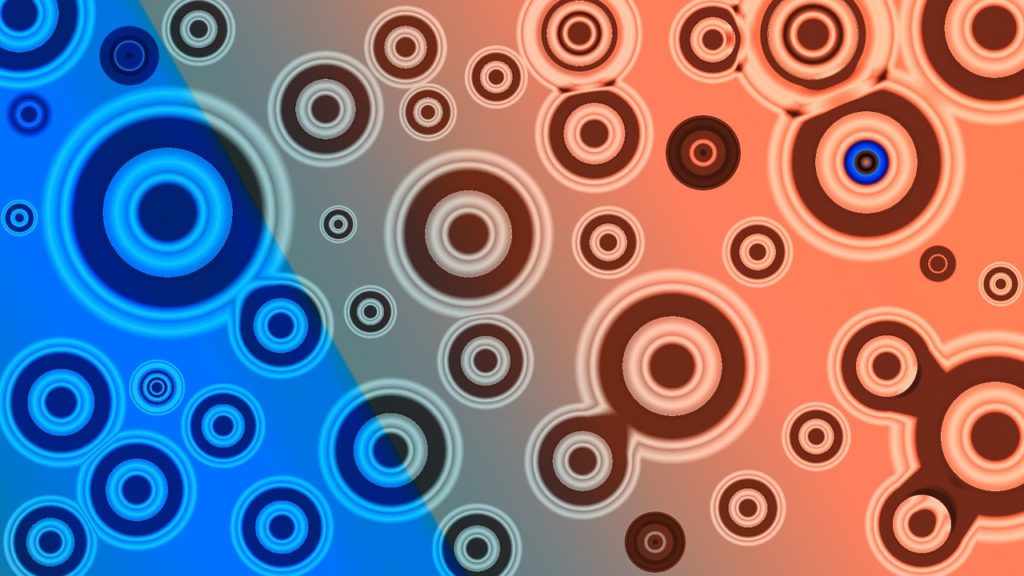
Deficiency vs overabundance
While it may seem like Zinc is a cure all, it’s best to look at it from several perspectives before filling a kiddie pool with zinc powder and roll around it like a human doughnut. The recommended daily range varies on age, gender and amount already present. On average per day, a teenage male and older will want about 11mg, and a teenage female and older will want between 8-9mg. Keep in mind these daily numbers are for regular maintenance levels for zinc.
If there’s a deficiency present or if the female is pregnant or nursing, the numbers will be different. In both cases it’s best to consult a trained medical professional for exact figures. Though generally speaking, treatment for zinc deficiency is recommended at approximately 30mg of zinc per day for 3 months. If you follow a regimen like this, make sure to include more copper. Zinc can deplete copper levels if taken to excess or for longer periods of time.
Deficiency
It’s important to note zinc deficiency is estimated to affect several billion people worldwide. In fact, almost 31% of people across the world are deficient in zinc. (Study) There are several important signs that are present in someone lacking in Zinc. Weakened immune system and skin rashes like acne are only a few. (Study)
Another symptom of deficiency is elevated histamine levels. Zinc is responsible for the storage of histamine in the body. That means less zinc, more histamine. Histamine can trigger allergy like symptoms (sneezing, running nose, hives, etc.). It can also intensify current allergies you may have and trigger more inflammation.
Overabundance
There is too much of a good thing, though. Besides depleting the body of copper when used in abundance, zinc overabundance has other side effects. If taken in amounts over 30-50mg daily, zinc can cause gastrointestinal problems in addition to nausea. I give a range because there’s no established perfect amount to take in regards to acne or other skin conditions.
Can zinc make acne worse?
At least for now, there appears to be little or no direct evidence that zinc can make acne worse. (Study) There may be side effects with depleted copper levels or other vitamins and minerals that excess zinc may affect. It’s possible that taking heavy doses of zinc for prolonged periods of time (not recommended) may trigger these depleted levels to result in side effects. Some of those side effects may include worsening of acne. That’s why it’s best to moderate use and keep heavy use for a limited timespan.
Best Use: Topical vs. oral
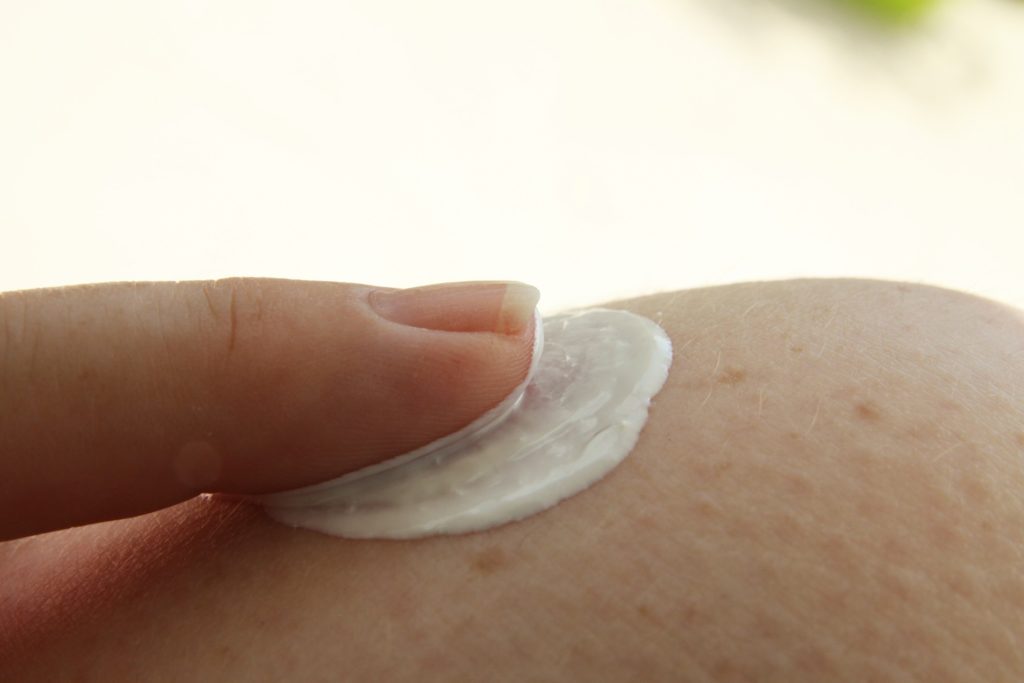
Topical:
OTC (Over the Counter) zinc cream for acne comes in different types. It’s best to understand a few points:
- Research into topical zinc for acne and its effectiveness is limited
- They aren’t typically meant to treat severe acne
- Mild to moderate acne suffers may benefits the most from using them
- The creams don’t necessarily treat the condition right away
- It can take up to 3 months or longer to see desired results.
With that in mind, it’s best to consider using the zinc cream for acne in conjunction with other topical treatments. Consider using a mild acid like beta hydroxy (ie salicylic acid) for a toner. Also, look into using washes (See Face wash post) and creams that contain benzoyl peroxide, vitamins, herbs or other minerals like sulfur to decrease inflammation and slough off dead skin cells. There are multiple gels, oils or serums with natural ingredients that can renew skin cells and repair much of the damage.
Once more, it’s worth noting that any topical treatment should be spot tested first. It’s difficult to determine what ingredients might cause a negative reaction. By spot testing, you confine any problems before implementing widespread adoption. It’s prudent. It’s wise. It may save you from an unfortunate reaction on an area of skin that’s hard to conceal—your face.
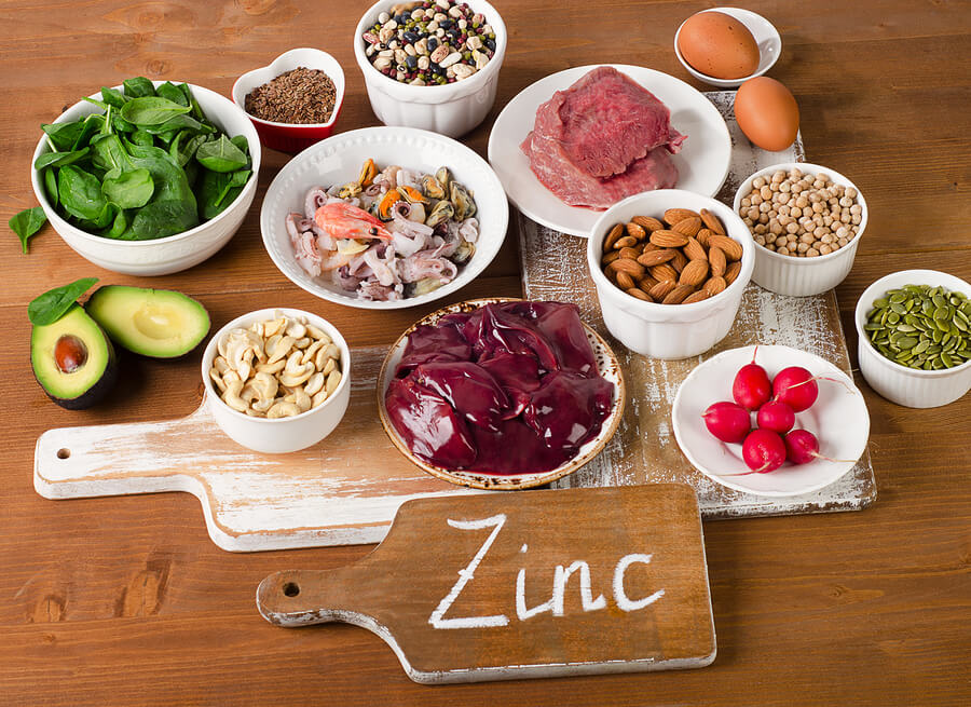
Oral
Foods/sources containing zinc
Multiple different types of foods contain zinc. So no matter what diet you may have, there’s something available for you.
It’s true that animal based products contain significant amounts. Meats like lamb, grass-fed beef and chicken contain zinc is quantifiable amounts. Though I’m loathe to recommend any dairy product, yogurt and kefir are cultured dairy and are generally better digested by the body. They both contain measurable amounts of zinc.
There’s a rich abundance of plant based choices that contain zinc. In descending order:
- Pumpkin Seeds
- Chickpeas
- Cocoa powder
- Cashews
- Mushrooms
- Spinach
By no means are the above listed foods the extent of zinc, but they are some of the more significant containing ones.
Best supplement version
The most common form of zinc supplement is zinc oxide. Unfortunately, it has one of the lower bioavailability of various zinc supplements on the market. This means your body has a hard time utilizing it efficiently. In other words, your body requires larger amounts to get the same benefits of a zinc supplement with better bioavailability.
Fortunately, several better alternatives exist. The zinc supplements with the highest bioavailability are zinc picolinate and zinc methionine. To a lesser extent, zinc gluconate also provides decent bioavailability.
It’s important to keep in mind that with increased bioavailability comes the possibility of increased side effects. That simply means you can’t take the same amount of zinc oxide as the other zinc supplements. As long as you know that before hand, you can adjust and calibrate accordingly. If you do, that should minimize most problems.
Pros vs. cons
While getting your full daily allotment of zinc from diet is preferable to supplementation, it’s not always practical. For this reason, it’s best to consider the various zinc supplements and find one that supplies the necessary amount you need. Keep the supplementation under the amount you want daily. This will allow any excess from your diet to have limited side effects. Remember, going over the 30-50mg a day range can put you at risk for gastrointestinal problems and nausea.

Zinc before and after
It’s easy to get carried away and latch on to reports about how zinc cleared my acne in days. Keep in mind the reports are anecdotal and may not hold up to wider study. Also, it’s not realistic to expect zinc to work fully in only a few days. It can take weeks or even months to raise levels of zinc in the body. That’s why it’s best to temper expectation and focus on the long term.
How long does zinc take to clear acne?
While it may take weeks or months to elevate zinc levels in the body, that doesn’t mean it takes that long to affect acne. I would expect to see some results in a few days. Mind you, some results. Not wholesale clearing of all signs or traces.
What I’m talking about is less oil production, less pore blockage and certainly less inflammation. These results should only improve with time and continued use, to a point. There will at some point be a plateau where signs neither improve or get worse. At this stage it may be wise to lower the dose of zinc or use less of the cream and observe the results. Find the ideal amount for you and be mindful of any other changes in symptoms other than acne.
Conclusion
Zinc isn’t the be all, end all solution to everyone’s acne condition. For most, it should be a solid piece or another tool for your toolkit. I can’t stress this point enough: more isn’t always better. Find the ideal amount for you. Be persistent and consistent in use. There aren’t many products that offer the potential to heal the acne suffer from both the inside and out for so economical a price. Seize the opportunity.
You can read the next article here!
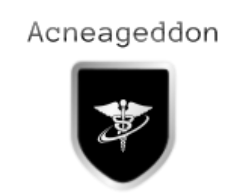

This is the first time I’ve seen info about zinc and its importance to acne. I really had not idea that acne and zinc had such a connection. However long it took you to write this, understand I’m grateful. You’ve got yourself a loyal follower. Thanks.
Really appreciate the kind words, Jen. Thanks for the follow.
This acne and zinc article has helped me a lot! It’s very well written and I’m glad I found it. 🙂 Kiss you all!
Thanks, Myrtice!
Good article, but I was wondering about how effective Zinc was against viruses. What are you thoughts?
While I haven’t seen anything to indicate that viruses cause, contribute or have any substantive impact on viruses, I catch what you mean. Zinc does help boost your body’s response to viruses, but it’s important to note that copper (copper ions, specifically) are also important. Zinc and copper have a bit of antagonistic effect on each other. This means it might be a good idea to take zinc supplement one day, copper the next and alternate.
Also, I’ve seen good research into Vitamin C and its efficacy against viruses, especially when given in high doses (6-10 grams +) and in either IV or Liposomal form. There’s tons of interesting research going on right now with huge clinical trials of Vitamin C in China right now. Thanks for the question.